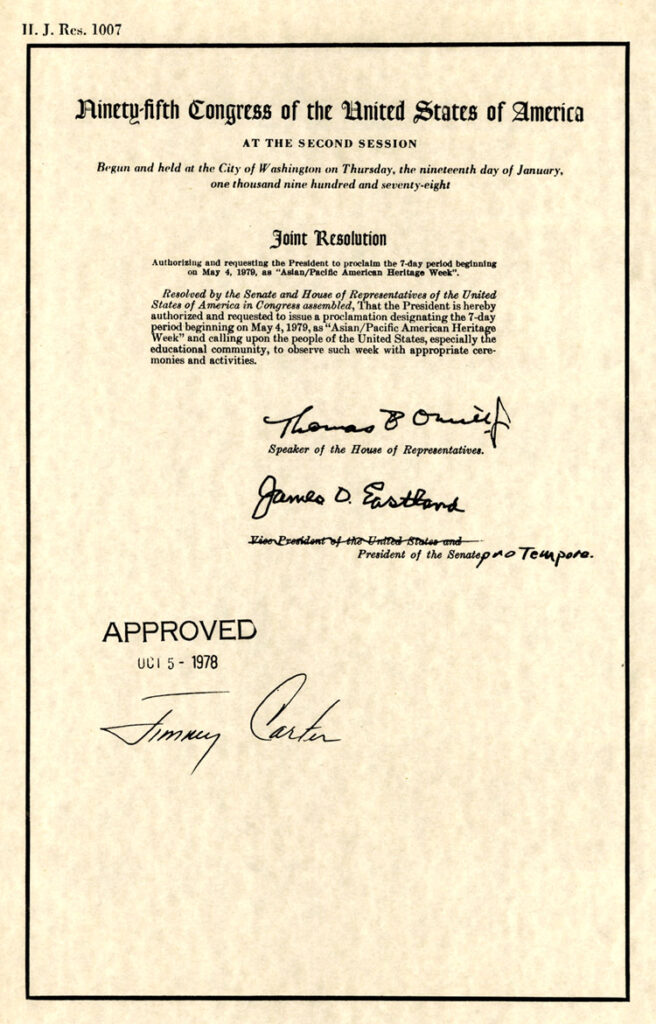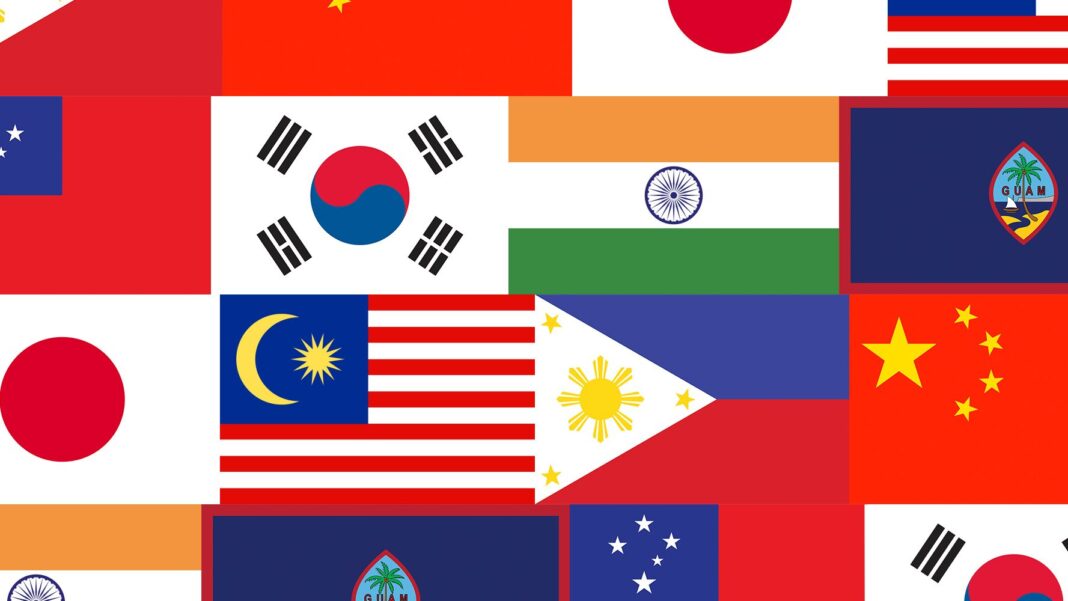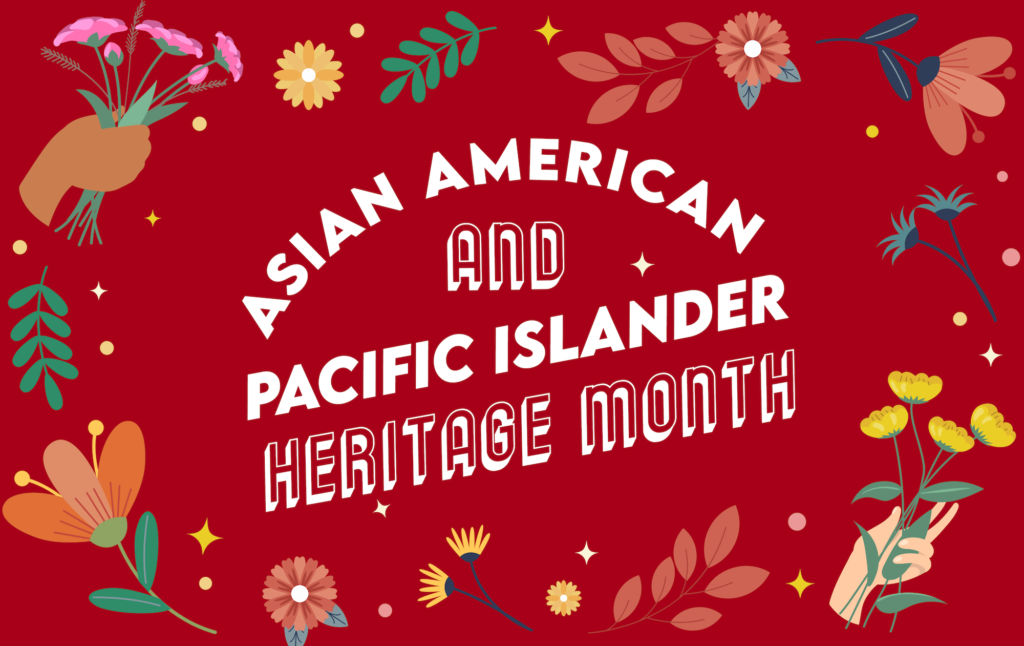May is now upon us, meaning that Asian American and Pacific Islander Heritage Month is officially underway. May is an exciting opportunity to commemorate the contributions of Asian American and Pacific Islander individuals and recognize how these cultures have helped to shape the world we know and love today. As May is all about celebrating the AAPI community, let’s look back at how these celebrations came to pass.
Efforts to establish Asian American and Pacific Islander Heritage Month first began in the 1970s, when a push to commemorate the contributions of the AAPI community was at the center of a national conversation. In 1977, New York Representative Frank Horton proposed May 1st through May 10th as Asian/Pacific American Heritage Week. Senator Daniel Inouye of Hawaii also introduced a similar proposal that year. Regretfully, however, these proposals were not passed. Representative Horton would then re-introduce the proposal in 1979, at which point he was finally successfully establishing the week of celebration. President Jimmy Carter officially signed this resolution into law, and from that point forward, every president from 1980 to 1990 issued annual proclamations celebrating the week.
May was selected for AAPI Heritage celebrations as the month signifies the anniversary of two hugely significant events in our nation’s history. May 7th, 1843, marks the anniversary of the first Japanese immigrants who came to the United States. Then, just a couple of decades later, on May 10th, 1869, the first Golden Spike Day was celebrated. Golden Spike Day commemorates the completion of the first transcontinental railroad in the United States, mainly achieved partly due to the labor and persistence of Chinese workers. During the construction of the railroad, Chinese laborers encountered several difficulties, including strenuous working conditions, inequitable labor practices, and long hours. To honor this legacy, as well as the gift of all immigrants who made their way to America’s shores, May appeared to be the perfect month to honor their memory.

In 1990, Congress decided to expand to a month-long celebration, and in 1992, President Bush officially declared the month of May as Asian/Pacific Islander Heritage Month. The observance was later renamed AAPI Heritage Month in 2009. Although one month cannot possibly encapsulate all the contributions of the AAPI community, the celebration does present an excellent chance to uplift advancements made by the AAPI community in the arts, governance, science, academics, and more. As a state abundant with diverse cultures, it is no surprise that this month brings about much to celebrate right here in the Garden State.
As the state’s fastest-growing population, the AAPI community has had and continues to profoundly impact our state’s development. New Jersey is home to the third-largest percentage of AAPI individuals in the United States. Tragically, in recent years, members of the AAPI community have had to endure an alarming uptick in incidents of bias and hate. Understanding the lived experiences of our neighbors, coworkers, and friends from the AAPI community is integral in cultivating cultural appreciation. By purposefully developing an understanding of the history and perspectives of the abundance of AAPI cultures, we are better equipped to forge a society where all are valued and appreciated. This is why New Jersey has taken the historic step to increase representation in NJ’s public school curriculum meaningfully.
In January 2022, Governor Phil Murphy signed legislation mandating the increase of Asian American and Pacific Islander history into kindergarten through 12th-grade curriculums. Per Governor Phil Murphy, “The members of our Asian American/Pacific Islander community have contributed so much to our state and nation. By teaching students about the history and heritage of our AAPI community, we can ensure that the diversity of our state is reflected in our curriculum and create a more tolerant and knowledgeable future for New Jersey. I am proud to sign these bills into law.” New Jersey is among the first states to make these mandates, with this bill serving as an inspiration to other states nationwide.
Representation matters, and we can only enjoy a genuinely equal society when everyone’s voice is heard. Correcting historical injustices and teaching the history of AAPI individuals is only the beginning. Still, these initiatives meanly shape a future in which all New Jerseyans are seen, heard, and appreciated. Although May only comes once a year, may we continue to learn from and reaffirm our commitment to the AAPI community all year round.
SOURCES:
- https://www.history.com/topics/holidays/asian-american-pacific-islander-heritage-month
- https://www.npr.org/2022/05/02/1095812576/aapi-asian-pacific-heritage-month-origin-may-why
- https://www.insidernj.com/a-tribute-to-asian-american-and-pacific-islander-heritage-month-in-new-jersey/
- https://njalternateroute.rutgers.edu/blog/how-make-us-visible-new-jersey-created-aapi-representation-every-classroom
- https://www.nj.gov/governor/news/news/562022/20220118c.shtml






